Charting a pedagogical course through stormy seas
by Victoria Jefferies Sea state: rough, occasionally very rough, rarely smooth! It’s rarely plain sailing in Early Childhood Education and Care (ECEC) with its myriad
by Vicky Hutchin
The so-called “Fundamental British Values” form a part of the Prevent Duty, introduced in 2015 and last updated in 2021. It all began with the government’s Prevent Strategy in 2011 with the aim of preventing people being ‘drawn into’ terrorism and terrorist attacks. The Prevent Duty places a duty on specified public bodies “to have due regard to the need to prevent people from being drawn into terrorism” or extremist organisations, which the government defines as “vocal or active opposition to fundamental British values” (Revised Prevent Duty Guidance 2021).
The “duty” to have regard to these is placed on local authorities and other public bodies and covers all types of educational institutions including early years settings, private and independent schools as well as maintained schools and academies. The Prevent Duty Guidance stresses the link between the legal requirement to safeguard children with the Prevent Duty and also the legal requirements in regard to the Equality Act 2010.
The “Fundamental British Values” are “Democracy, rule of law, individual liberty and mutual respect and tolerance of those with different faiths and beliefs.” But why should these be called “British” values? Many people find this very upsetting: there is nothing inherently “British” about them. The idea that these values are just British rather than shared values seems designed to exclude others rather than embrace diversity. Are they not “basic human values” that many populations around the world would support? A better title might be “the fundamental values that underlie public life in the UK” which involve helping to eliminate discrimination, celebrate diversity, promote respect for others, act inclusively and promote inclusion and equality and foster good relations. Also why is it only mutual respect for those with different faiths and beliefs, rather than respect for others per se, and what is meant by “tolerance”? In this article I am going to refer to them as just “Fundamental Values”.
The 2021 Guidance states clearly that for early years, these values are already enshrined in the EYFS 2021. “Early years providers already focus on children’s personal, social and emotional development. The Early Years Foundation Stage framework supports early years providers to do this in an age appropriate way, through ensuring children learn right from wrong, mix and share with other children and value other’s views, know about similarities and differences between themselves and others, and challenge negative attitudes and stereotypes.”
So, with this in mind, let us remind ourselves of some of the statements on the first page of the EYFS Statutory Framework, 2021. It is not just PSED we need to look at. The EYFS Statutory Framework begins with the duties placed on all who work with the children: the link between equality, anti-discrimination and how to promote the Fundamental Values is established at the outset. “Every child deserves the best possible start in life and the support that enables them to fulfil their potential”. As one of the 4 bullet points in paragraph 3 it states that the EYFS seeks to provide: “Equality of opportunity and anti-discriminatory practice, ensuring that every child is included and supported.”
All this should allay fears amongst early childhood practitioners and teachers that these “Values” are not something unusual requiring settings and schools to put up displays of the Union Jack, as many did in 2015 when this duty first came in, but about something relating to social justice, respect and care for each other, embracing and celebrating diversity.
The Prevent Duty Guidance also points out that for schools the Fundamental Values should be seen as be part of the school’s policy on spiritual, moral social, and cultural development.
There is no statutory requirement to have a specific statement on the Fundamental Values now for either schools or early years providers, but you will need to be able to demonstrate how you will be meeting them and Ofsted include this under Personal Development for both schools and early years settings. Taking action to embrace and celebrate diversity is part of how you implement the duty. Ofsted have been including the Prevent Duty requirements as part of their role in assessing the effectiveness of schools and early years for many years now. For both schools and early years the Prevent Duty appears under Personal Development in both the Schools’ and Early Years Ofsted Handbooks 2022, although both documents state the responsibilities to implement the Fundamental Values in different ways. The inspection handbooks can be found here:
Children learn from everything around them: what we ignore as well as what we notice, prioritise and highlight; what we love and value as well as what we don’t; what we forbid as much as what we allow. Our world in the UK and elsewhere is full of things which discriminate in all sorts of ways.
Ethnicity, gender, culture, language, social class, poverty, being a refugee or asylum seeker, LGBTQIA+, disability and/or learning differences can all become excuses for prejudice and reasons to discriminate or exclude. It may be hidden and unconscious, based on unquestioned, historical and ‘traditional’ attitudes and ways of doing things or it may be overt. It may be unintentional just because we haven’t considered how our actions or inaction can affect others. But, in spite of historic under-reporting there is also a continuing rise in overt hate crime. Data for hate crime in England and Wales published in 2021 showed over 124,000 such crimes were reported to the police, an increase of 9% on the previous year.
You probably already do a great deal more in your setting or school than you realise to meet the Fundamental Values. In addition to making the very best inclusive provision you can for the children, and involving parents and families in this too, here are just a few things to consider.
Professional development: reviewing practice and policies
Evaluating how well your setting or school is doing in respect to the Fundamental Values, promoting equality, anti-discrimination and celebrating diversity and its impact is a really useful thing to do. As a staff team sharing your personal fundamental values is a great start. One good way to review your practice is a programme such as Persona Doll Training’s Talking Points programme . There are also other tools available to help but the strength of this one is that it is designed to include your whole team in discussions about equalities, diversity and inclusion in a relaxed and easy to implement way, such as one agenda item in a series of staff meetings. Those undertaking the programme have found it invaluable, engaging and enjoyable. Reviewing in this way helps you as a team to make your values explicit as a team, helps develop positive relationships and positive attitudes amongst staff team and with parents, providing positive models for the children to see and feel. It also helps to ensure all staff members know your policies and any agreed procedures you have in place.
Birth to 5 Matters is an invaluable source of help in a way you will not find anywhere in the 2021 Development Matters. In the Birth to 5 Matters guidance (2021) you will find that the importance of equalities, and thereby implementing the ‘Values’ is threaded right through the document from the very first page. The section on Equalities and Inclusive Practice spells out that real equality is not just about giving everyone the same opportunity, but going further, taking note of difference and the uniqueness of every child and taking action to ensure that those who need more support receive it. “A commitment to valuing and respecting the diversity of individuals, families and communities must sit at the heart of early years practice. Inequalities persist in society, with far-reaching effects on children’s education, health and life chances. Early years settings have a vital role to play in explicitly addressing all forms of discrimination and prejudice”. (Birth to 5 Matters Guidance, p24)
More practical actions
There are so many practical actions which can support inclusion, instil fairness towards others, develop positive relationships and broaden children’s horizons beyond their local communities. I have just named a couple of things here.
Reviewing your books and displays
Do these demonstrate diversity and champion inclusion? Do you audit the books you have in the book corner every time you change these and your store of books from time to time? Are they all acceptable and promote the inclusive respectful values you wish the children to have? Some of the really great picture books for young children are about being excluded in one way or another but this is designed to get children (and you) thinking and talking – really great for PSED.
In a similar way regularly looking at your displays, particularly any posters you display. One nursery I worked with recently realised that they had no photographs on display of children or adults with disabilities or even wearing glasses. They had been working on making sure their displays showed girls being very active, especially outside but they had not noticed other omissions.
Using Persona Dolls
You may recall that in the past there was mention of Persona Dolls in the old Development Matters. These are no longer there but the references are now to be found in Birth to Five Matters, in the sections on PSED and Understanding the World for range 5 and 6. The Persona Doll approach involves a storytelling process about the life of a doll for which staff have created a persona and family background. The doll is not a toy for children to play with, but only used for the storytelling sessions. Once the doll is introduced to the children and they get to know it, it becomes like a friend to them and through stories created by the staff it offers a stimulating, non-threatening and enjoyable way to combat discrimination and exclusion, develop empathy and respect, broaden horizons and raise discussions on equality issues with the children.
Persona doll stories provide a powerful way of engaging children in thinking critically about others, how we treat each other, equality and social justice. In fact: democracy, respect, tolerance, liberty, listening to others, understanding and empathy are all addressed and the children are fully involved in all the discussions, solving any problems the doll has, sharing their thoughts and ideas. For more information, go to Persona Doll Training.
References
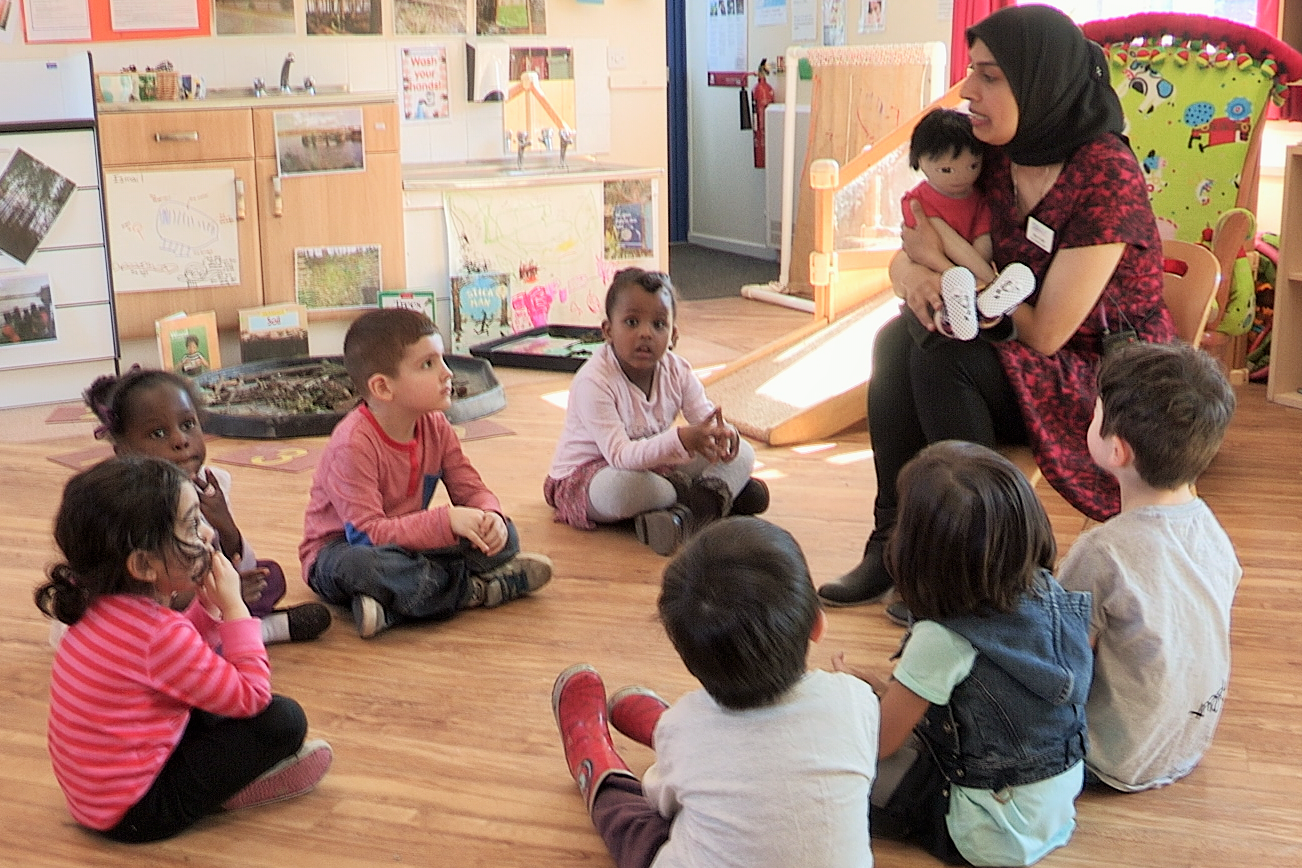
by Victoria Jefferies Sea state: rough, occasionally very rough, rarely smooth! It’s rarely plain sailing in Early Childhood Education and Care (ECEC) with its myriad
The letter below sets out our key asks for the next government.
Early Education Associate, Debi Keyte-Hartland reflects on a recent commission by Balcarras Teaching School Hub In Gloucestershire to deliver a four-day course on Sustained Shared
by Frances Giampapa and Claire Lee Introduction A wealth of evidence demonstrates the fundamental role played by early years (EY) education in shaping a thriving
by Katherine Gulliver Introduction Early Education was recently asked to review the special educational needs and/or disabilities (SEND) provision in the early years within one
Clare Devlin, Early Education Associate What aspects of physical development should we focus on within the Early Years Foundation Stage (EYFS) and other early years
By Debi Keyte-Hartland, Early Education Associate This article is based on one included in the Early Education Journal no 100. To access the full article
In this article, Kate Irvine from Bristol Early Years discusses the impact of practitioners engaging in a sustained process of CPD through cluster groups and
by Dr Jo Albin-Clark, Edge Hill University and Dr Nathan Archer, Leeds Beckett University Inspection in the news Being involved in education in England involves
The open letter below was sent to Ofsted in November 2023. Download Ofsted’s response We the undersigned are writing to you about the recently published
Early childhood education today has been influenced by key figures such as Froebel, Montessori, Isaacs and MacMillan. Much recent research has supported their ideas although
Sustained shared thinking: An episode in which two or more individuals “work together” in an intellectual way to solve a problem, clarify a concept, evaluate
Early years pedagogy is the theory that informs the practice of teaching children in the early years. The pedagogical research has been carried out by
by Cathy Gunning What is reflective practice? Reading a book by Donald Schon early on in my career as a teacher opened my eyes to
The Early Career Framework has been designed by the Department for Education in England to support newly qualified teachers in England with a structured package of support
The following extracts from past early years teaching newsletters have a feature which supports your team dialogue around pedagogy and practice dilemmas and reflective practice.
Last updated Spring 2018. The preschools of the Reggio Emilia in Northern Italy inspire us with their pedagogy and practice in giving children rich encounters
In most cases, sound early years principles and practices are already in place in settings. The EYPP funding allows settings to review and refine what
Who was Friedrich Froebel (1782-1852) Born on 21 April 1782 Friedrich Froebel was a German educator who invented the kindergarten. He believed that “play is
This article by Early Education Associate Anni McTavish explores the term “cultural capital”, and what it might mean for early years practitioners and their settings.
Welcome to the e-book Child-Centred Competences for Early Childhood Education and Care. The book brings together four years of research undertaken by early childhood academics
Raymond Williams maintained, after years of examining constructs of culture and society that “Culture is one of the two or three most complicated words in
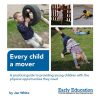



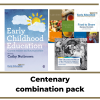
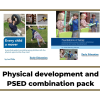

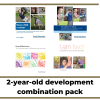
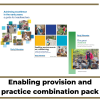
Early Education
2 Victoria Square
St Albans
AL1 3TF
T: 01727 884925
E: office@early-education.org.uk